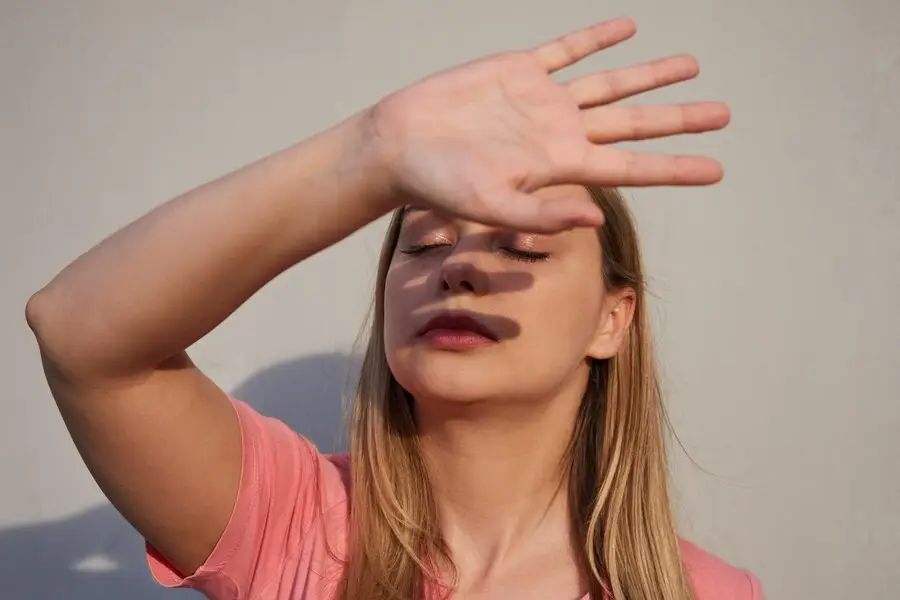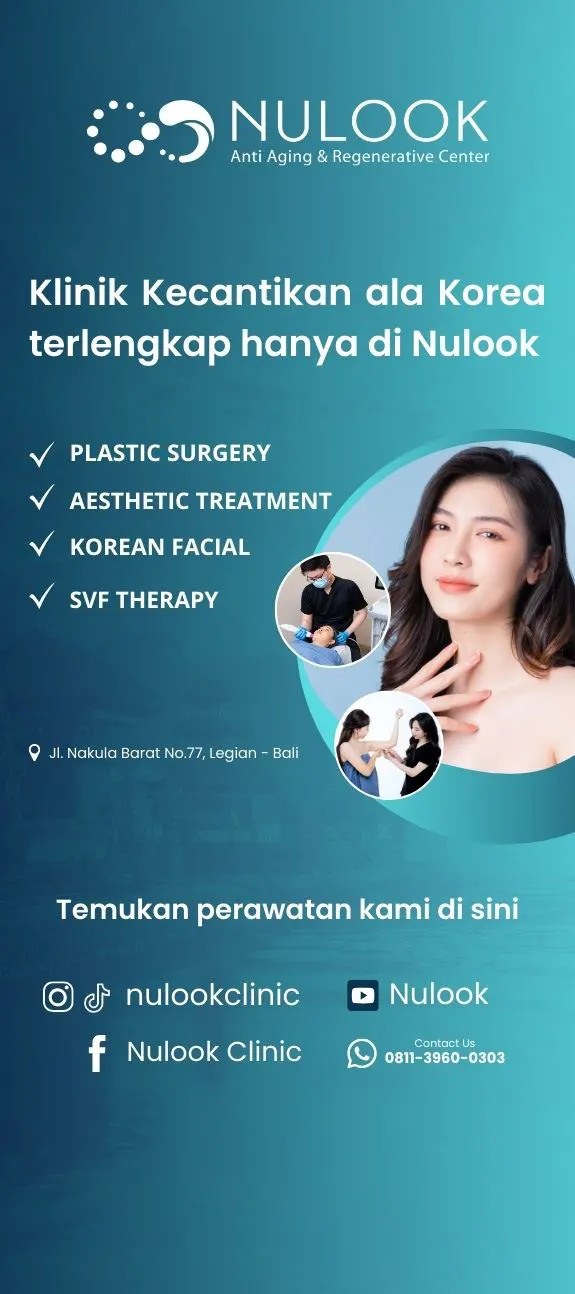The Dangers of Sunlight for Your Face and How to Protect It
Author: Nulook ExpertiseReview by: -Sunlight exposure does offer benefits to the body, such as aiding in the production of vitamin D. However, frequent unprotected exposure to sunlight can be harmful, especially to the skin of the face. Ultraviolet (UV) radiation from the sun can damage the skin, causing premature aging, and even increasing the risk of skin cancer.
If you often engage in outdoor activities, it is important to understand the dangers of sunlight for the face and how to protect your skin. Let’s take a look at the full details below!
The Effects of Sunlight on the Face
Sunlight’s UV rays consist of UVA and UVB, which can penetrate the skin and cause various health problems. Here are some major dangers of sunlight for your facial skin:
1. Premature Aging
Excessive exposure to UVA rays can damage the collagen and elastin fibers in the skin. As a result, the skin loses its firmness, leading to the early appearance of fine lines and wrinkles. The skin may also sag and appear older than its actual age. This is why it is essential to always protect your face from the sun to maintain youthful skin.
2. Skin Cancer
UVB rays from the sun can cause DNA damage in skin cells, which could potentially lead to skin cancer. One of the most dangerous types of skin cancer is melanoma, which can spread rapidly to other organs. Long-term unprotected exposure to sunlight can increase the risk of skin cancer, especially for those who spend a lot of time outdoors.
Read Also: The Difference Between Sunscreen and Sunblock: Choosing the Right Sun Protection
3. Weakened Immune System
UV rays can weaken the immune system, especially in the skin. When the immune system is compromised, the skin becomes more susceptible to infections, inflammation, and other skin diseases. As a result, acne, irritation, and allergic reactions may occur more easily. Therefore, protecting your skin with sunscreen helps maintain the health of your immune system.
4. Dry and Dull Skin
Prolonged exposure to sunlight can reduce the water content in the skin, leading to dryness and dehydration. Skin that loses moisture feels rough, appears dull, and loses its natural glow. If left untreated, this condition can accelerate signs of aging and make the skin more sensitive to other environmental factors.
5. Appearance of Dark Spots
UV radiation can stimulate the overproduction of melanin, leading to hyperpigmentation or dark spots on the face. These spots usually appear in areas frequently exposed to the sun, such as the cheeks, forehead, and nose. If not addressed, these dark spots can multiply and become difficult to remove, creating uneven skin tone.
6. Sunburn
Sunburn occurs when the skin is exposed to sunlight for too long without protection. Symptoms include redness, pain, and sometimes peeling skin. In more severe cases, sunburn can cause swelling and painful blisters. Therefore, it is crucial to wear sunscreen and protective clothing when exposed to sunlight.
7. Risk of Skin Inflammation
Excessive exposure to sunlight can also trigger chronic skin inflammation, particularly for those with sensitive skin conditions such as rosacea and eczema. UV rays can worsen these conditions, causing the skin to become red, itchy, and warm to the touch. If you experience irritation after sun exposure, it's best to seek appropriate treatment.
Read Also: 9 Ways to Treat Sunburn on Your Face Easily
How to Protect Your Skin from the Dangers of Sunlight
You don’t need to worry about the dangers of sunlight, as there are many ways to protect your skin and keep it healthy. Here are some steps you can take to protect and maintain your skin:
1. Use Sunscreen Every Day
Sunscreen is the primary defense against the harmful effects of sunlight. Choose a sunscreen with at least SPF 30 and PA+++ for optimal protection against UVA and UVB rays. Don’t forget to reapply every 2-3 hours, especially if you are sweating or swimming.
2. Wear a Hat and Sunglasses
Accessories such as a wide-brimmed hat and UV-protective sunglasses can help reduce direct sunlight exposure on your face. A hat can protect your forehead and cheeks, while sunglasses shield your eyes from UV damage.
3. Avoid Sun Exposure During Peak Hours
UV rays are the strongest between 10 AM and 4 PM. If possible, avoid direct sun exposure during these hours or use an umbrella for additional protection.
4. Use Skincare with Antioxidants
Antioxidants like vitamin C and E in skincare products can help fight free radicals caused by sun exposure. These ingredients also brighten the skin and help repair UV damage.
5. Eat Nutrient-Rich Foods
Foods rich in antioxidants, such as leafy greens, berries, and nuts, can help improve your skin’s natural protection against sun damage. Staying hydrated by drinking enough water is also essential for keeping your skin moisturized.
Read Also: How to Even Out Uneven Skin Tone on the Face
Signs of Sun Damage on the Face
If your facial skin has already suffered damage from sunlight, you may start to notice the following signs:
1. Wrinkles
Wrinkles are signs of aging that can be accelerated by sun exposure. The skin loses its elasticity because collagen and elastin are damaged by UV radiation, causing fine lines and wrinkles to appear sooner.
2. Broken Blood Vessels
UV rays can damage the small blood vessels beneath the skin, leading to the appearance of broken blood vessels or spider veins. These are often seen as thin red lines around the nose, cheeks, or chin.
3. Brown Spots
Brown spots, also known as age spots, are dark marks that appear due to excessive melanin production after prolonged sun exposure. These spots typically appear on areas frequently exposed to the sun, such as the cheeks, forehead, and nose. While not harmful, these spots can make the skin appear dull and age faster.
4. Hyperpigmentation
Excessive sun exposure can trigger hyperpigmentation, a condition where the skin experiences uneven color changes. This occurs because UV rays stimulate the overproduction of melanin, leading to dark patches in certain areas of the face.
Unprotected sun exposure can lead to various skin problems, from premature aging to the risk of skin cancer. Therefore, it is crucial to always protect your face with sunscreen, wear protective gear, and adopt a healthy lifestyle to maintain skin health. Additionally, you can undergo treatments such as thermage to help repair skin damage and restore facial radiance.
Thermage Tightening at Nulook: The Solution for Healthy, Youthful Skin
If you have already noticed signs of sun damage, don’t worry! Thermage at Nulook is here as a skincare solution that can restore the health and elasticity of your facial skin.
This treatment works by delivering RF energy deep into the skin to stimulate the production of new collagen, helping to tighten and firm the skin over time. Thermage is specifically designed for:
- Skin Tightening: Thermage is highly effective at tightening loose skin, particularly on the face, neck, and cheeks, making your skin look firmer and fresher.
- Wrinkle Reduction: By smoothing fine lines and wrinkles, Thermage provides a more youthful appearance to the skin, helping reduce signs of aging.
- Non-invasive and No Recovery Time: Thermage is a non-invasive procedure that requires no incisions or downtime, so you can resume daily activities immediately after treatment.
- Long-lasting Results: While Thermage results are not permanent, the tightening and wrinkle-reducing effects can last up to two years, with maintenance treatments for longer-lasting effects.
- Stimulating Collagen Production: Thermage stimulates new collagen production, improving the overall quality and texture of the skin, making it look smoother and firmer.
Don’t let sunlight damage your facial beauty! Visit Nulook or schedule a consultation and experience the amazing benefits of Thermage for healthier, firmer, and glowing skin.
References:


